A Market with a Mission
Published on September 30th, 2019 by Molly Brind'Amour
Grassy, sunny and filled with friendly faces, Birdhouse Farmers Market might be just the antidote to a trip to your grocery store.
On warm Tuesday evenings, Richmonders descend on the Randolph market to stroll its stalls stacked with abundant, colorful produce and other local foods. The pace is leisurely, the vendors are friendly and September’s harvest has been bountiful.
And the best part about this shopping experience? For those on SNAP, explains market manager Kate Ruby, it can be cheaper than Kroger.
Making Local Affordable
Birdhouse Market uses the Virginia Fresh Match program, which matches up to $20 of SNAP dollars each week, according to Kate. The matching dollars can be used on fresh fruits or vegetables, making them especially cheap.
But unlike at your typical grocery store, the goods come from right here: that is, the products travel an average of just 70 miles to reach the market. Shoppers are taking home quality products that didn’t have to travel very far to reach the dinner table.
“Most of this produce was picked this morning,” says Kate.
As Kate explains, the distance a piece of produce has to travel impacts its nutritional profile. When foods don’t have to travel as far, they’re able to retain their freshness better en route. Additionally, they’re able to be picked at the peak of freshness, rather than picked underripe in preparation for a long journey to the supermarket.
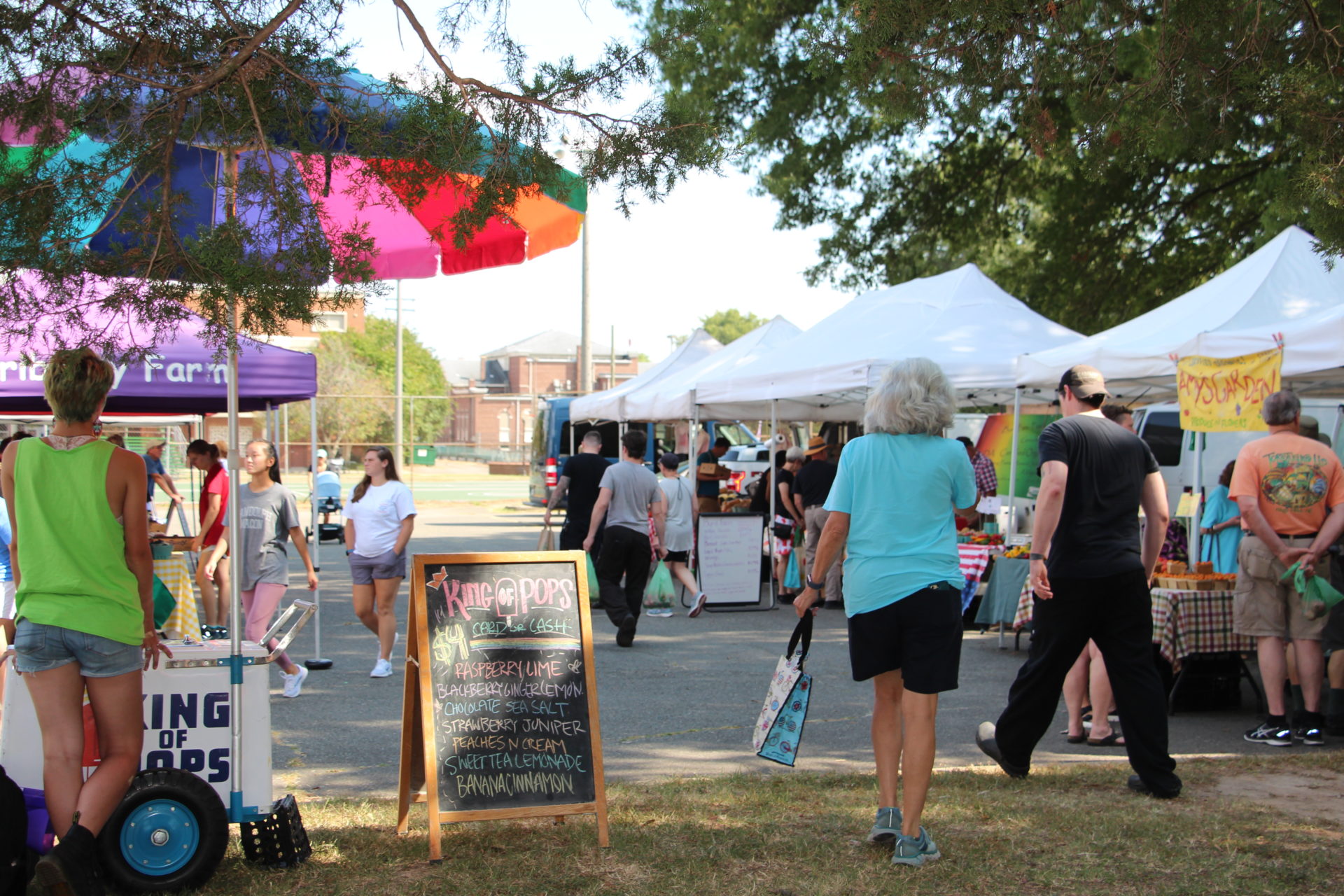
Providing the Bounty
Birdhouse vendor Eli Talbert started off as a customer, visiting Birdhouse Market for the past eight or nine years. He started selling three years ago, and this year, he says he’s seen a steady uptick.
Today, Eli is selling oyster and turkey tail mushrooms, as well as bright green pawpaws that draw the attention of an impressed customer. The green, oblong, tropical-tasting fruit are native to the Midatlantic — but you won’t find them at any supermarket.
Eli foraged for the pawpaws on Deer Run Farm, in Amelia, about an hour southwest of Richmond. His base of operations, Talbert Farms, is located in Chesterfield. The unique mushrooms and pawpaws, like all the fresh fruits and vegetables, are eligible for the double SNAP program.
Caleb Richards, of ShireFolk Farm in Palmyra, is enjoying his first year at the market, selling produce, eggs and pasture-raised meat.
“I definitely look forward to the social interaction,” Caleb explains, adding that he wishes people asked even more questions.
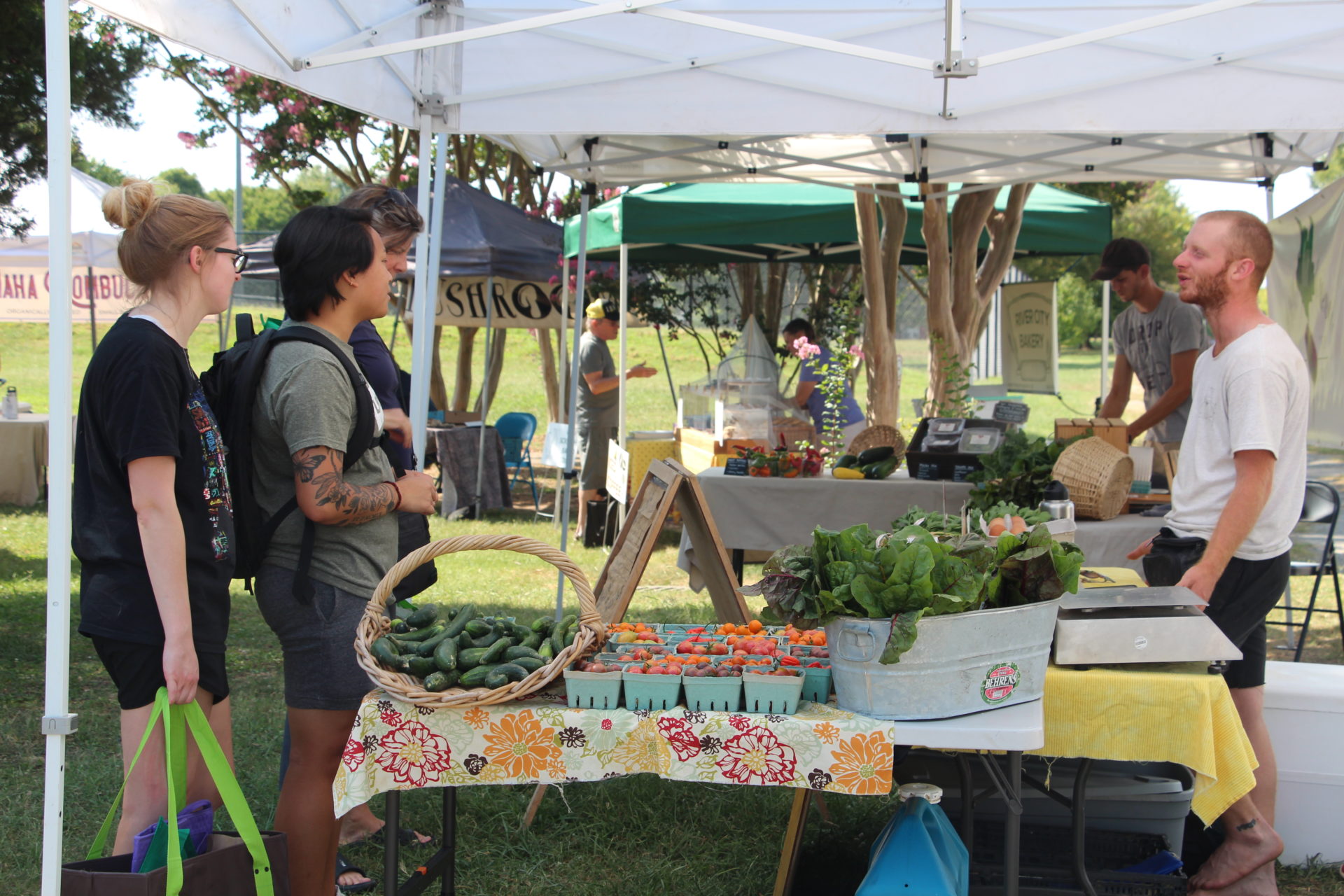
For Caleb, pasture-raised is an important label because it indicates that the animals are raised on grass, in an open-air environment. It’s an entirely different qualification from organic, which doesn’t indicate anything about the animals’ welfare, Caleb explains.
ShireFolk’s animals move, using a system called positional grazing, meaning that the animals aren’t stuck in the same spot for their whole lives, like some conventional farm animals. According to Caleb, this type of grazing also means that pastured animals have a lower parasite load than those who stay in the same spot.
Like the animals at ShireFolk, Caleb also enjoys the opportunity to stand on grass — Birdhouse Farmers Market is located in Petronius Jones Park, which means vendors don’t have to camp out in a hard parking lot.
“I also really like the demographic here,” Caleb adds, noting another reason why he prefers Birdhouse, explaining that he sees some visitors who are clearly affluent and some using SNAP.
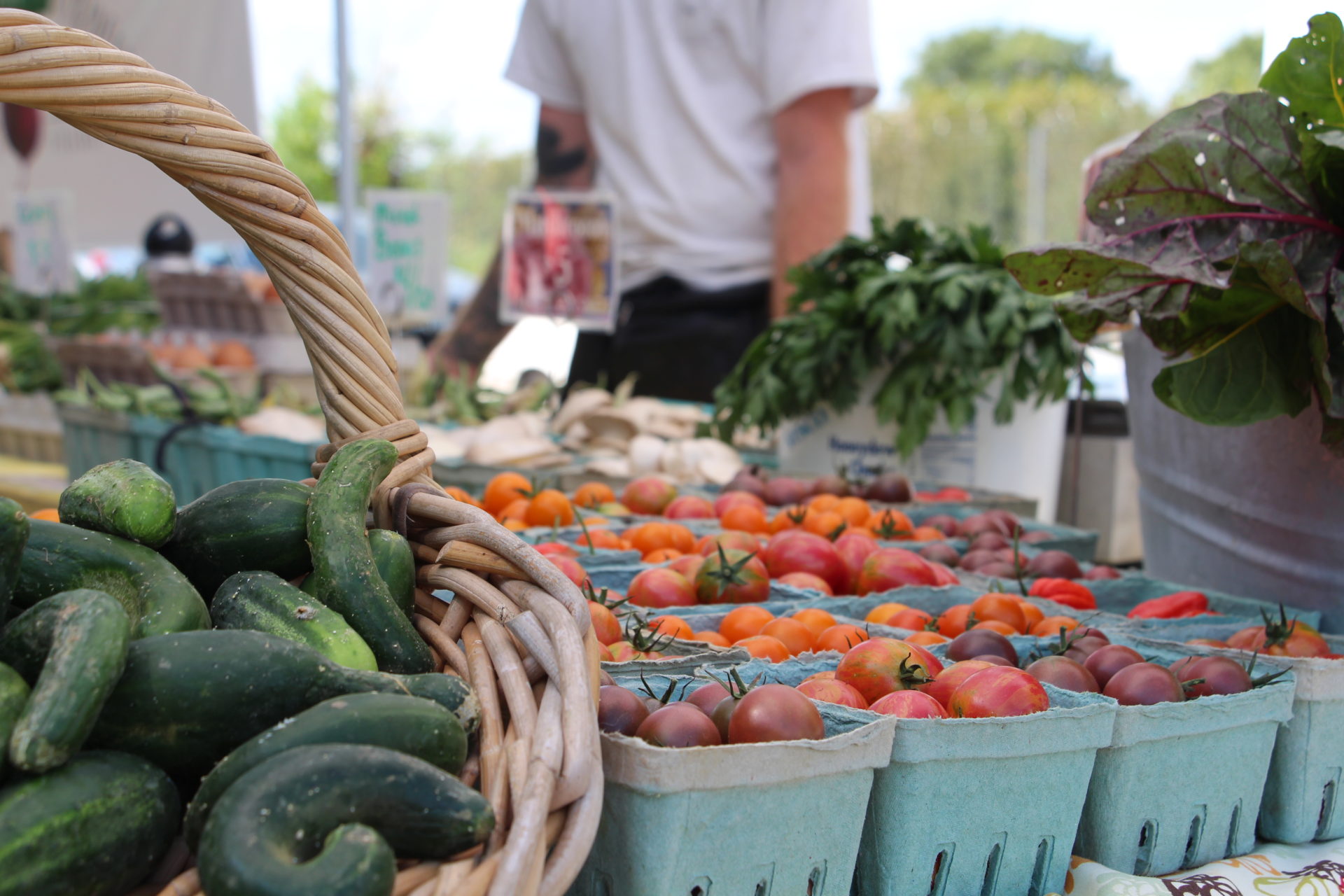
Community Cross-Section
Kate Ruby is something of an expert on the crowd the market serves, working year-round on the market, which is now in its 13th season.
“We get a pretty good cross-section,” she explains.
First, you have the farmers market regulars who, according to Kate, are the type to show up for farmers markets all around the area.
Next, there are the customers who like to follow certain vendors around, who will pursue their favorite vendor at different markets.
And, of course, you have people from the immediate neighborhood, who Kate has worked to entice with a partnership with the nearby Randolph Community Center, another Enrichmond partner group. The market put on veggie tastings and scavenger hunts for kids at Randolph’s summer camp, in the hopes that the children would share the market with their parents.
“It’s always good to see the kids dragging their parents here,” Kate explains. “Parents come over and they’re really surprised by what they see.”
The fourth category of customer is students — since moving back to the Randolph neighborhood from Oregon Hill in 2016, the market has seen the return of VCU students.
For Kate, this is another purposeful, intentional effort. She makes a point to spend time at VCU, reminding students about the market and sharing coupons.
And VCU students are in luck — the start of the fall semester brings with it the fall harvest, and some beautiful tomatoes, eggplants and gourds. Even better, many fruit and vegetable vendors offer a $10 student box, which provides cheaper prices with discounted or overstock produce.
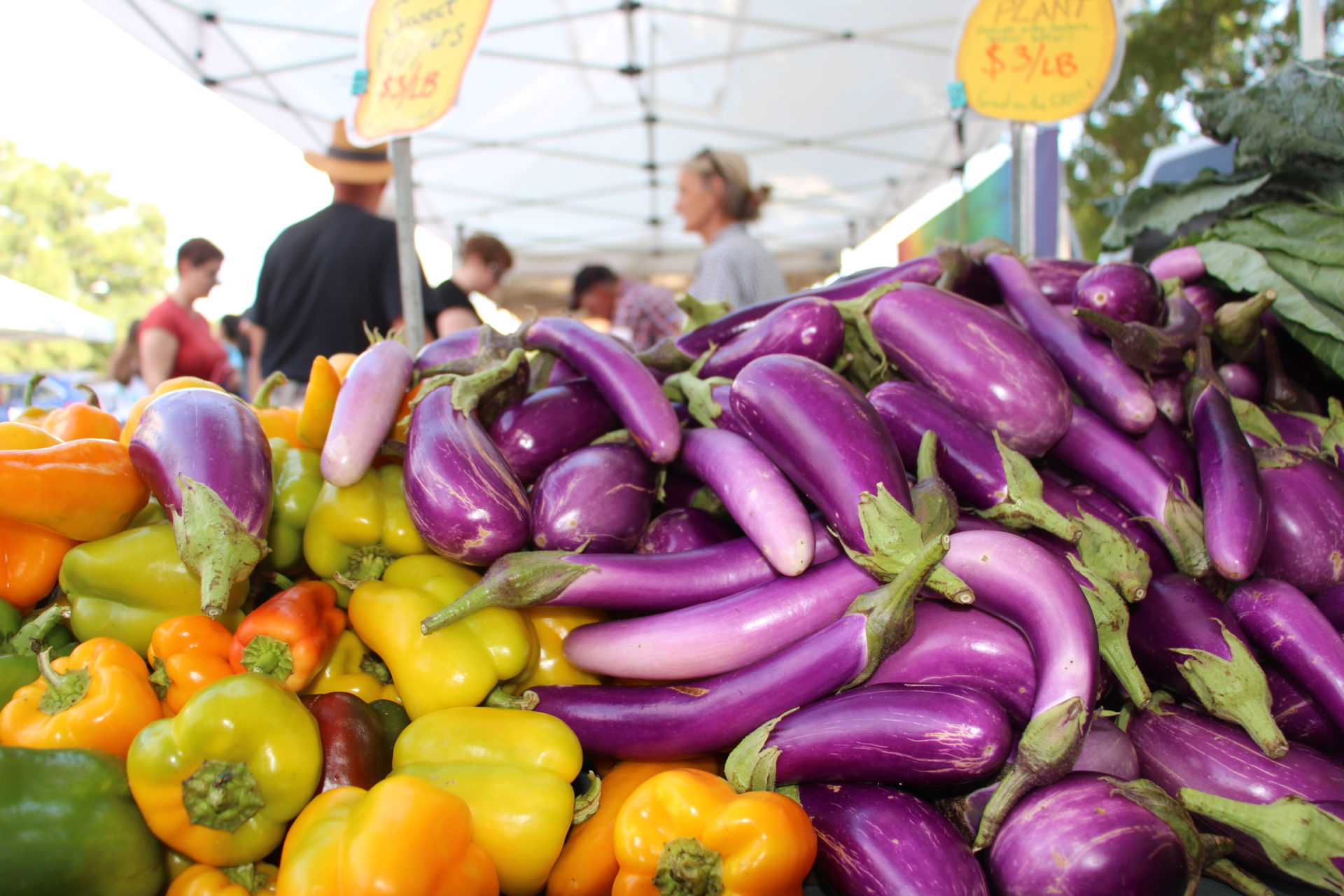
Birdhouse Market is able to deal with the financial matters of running a market through a partnership with Enrichmond Foundation.
“As a small non-profit farmers market, we must be good stewards of our resources,” Kate explains.
“Our partnership with Enrichmond has provided us with peace of mind of knowing that the bulk of our financial matters and legal reporting is being handled professionally by Enrichmond. This relationship enables us to keep our focus on our mission of supporting local farmers and expanding healthy food accessibility,” she adds.
A Richmond Fixture
For Debra and Philip Stoneman, the market is a chance to catch up with old friends. Their farm, Byrd Farm, has been in the family since the 1800s.
Byrd Farm, located in Goochland, has been serving the community at Birdhouse for 11 years. They were one of the market’s first vendors, and they continue to bring chicken, eggs and honey to the market every week, as well as the produce that’s in season.
Their long history with the market has helped them build strong relationships with their regular customers, those who come back week after week.
“We come back and see our friends,” Debra says, laughing.
But the market’s not just about friendship and healthy eating. As Kate sees it, the market — and the local food it supports — has the power to help make Richmond stronger.
“Our food system can only supply us with 3 days of food,” Kate explains, citing the Department of Homeland Security. According to Kate, if Richmond was cut off from the rest of the world, supply-wise, we would only have a few days’ worth of food in our stores.
With markets like Birdhouse, the community is able to develop food webs that are more self-reliant, rather than relying exclusively on food sourced from far away.
“It makes us more resilient as a community,” Kate explains.
Resiliency, sustainability, community and economy — there are myriad reasons people shop and sell at the Birdhouse Farmers Market. And if you find you’ve found the tastiest tomato of your life, well, that’s just the icing on the cake.
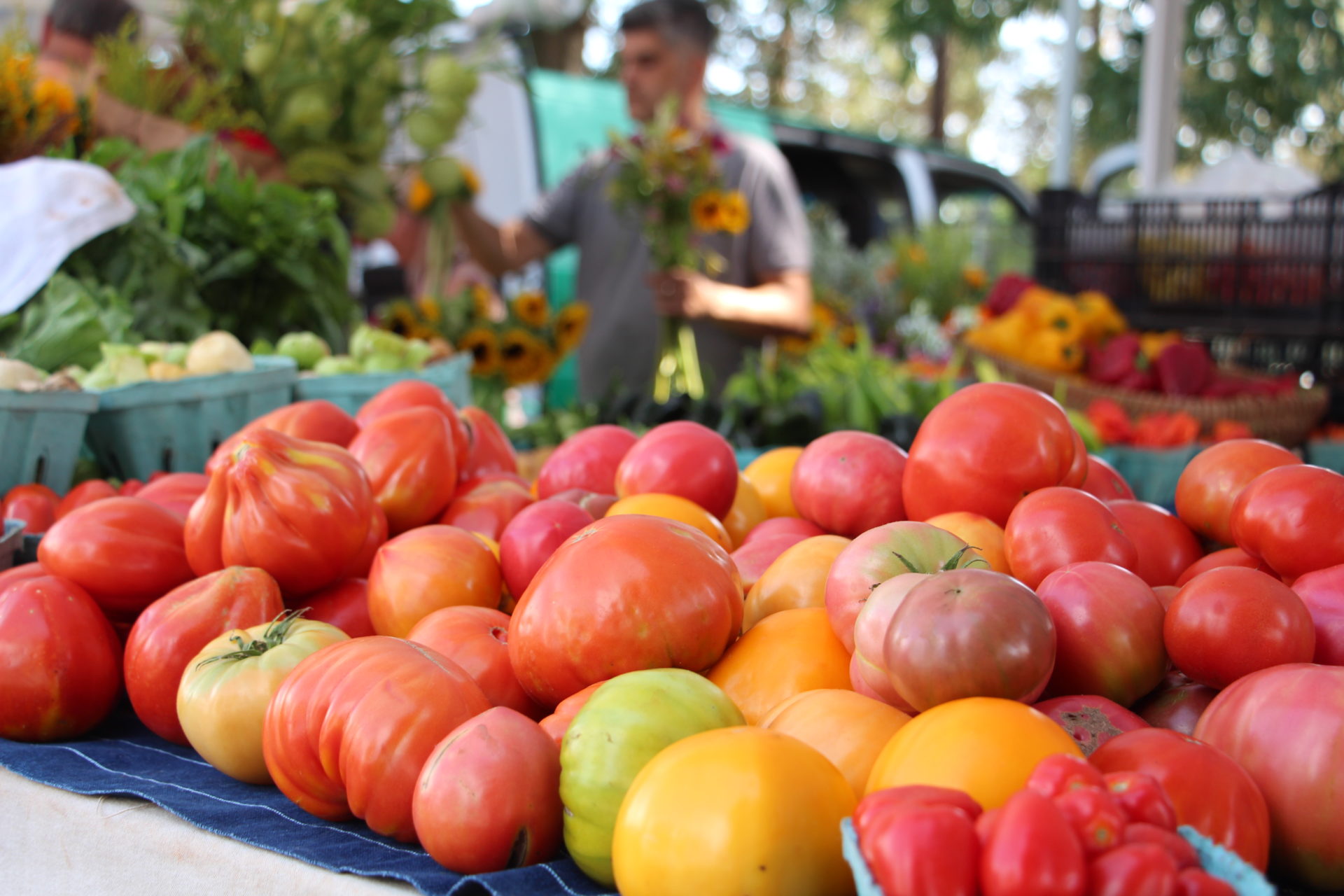
Birdhouse Farmers Market is open on Tuesdays from 3 p.m. until 6 p.m., May — November, in Petronius Jones Park.
Information on the market’s events and vendors can be found on Birdhouse Farmers Market’s website and Facebook page.
More information on the Virginia Fresh Match SNAP program, including other matching market locations, can be accessed on the program’s Facebook or website.